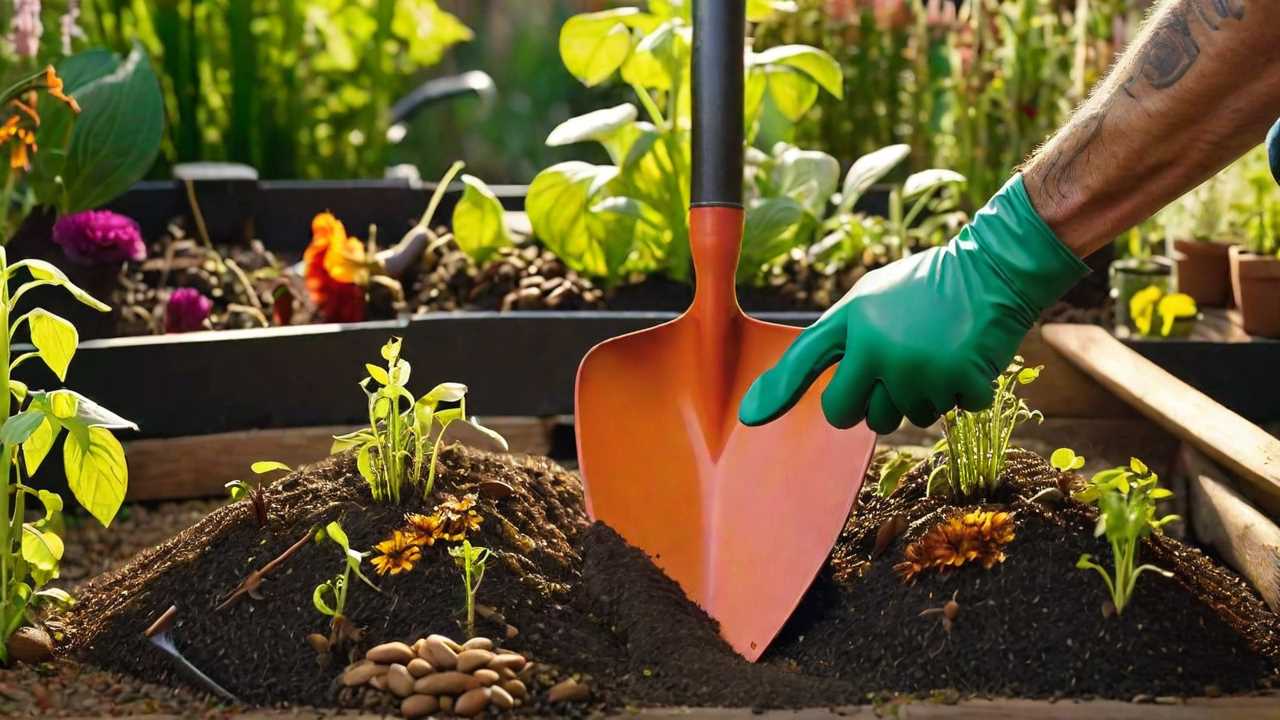Health
How to Start an Organic Garden at Home?

Did you know that the global organic food market is projected to reach $320.5 billion by 2025? Interested in starting your own organic garden at home? Discover the essential steps to take for a successful organic garden right in your backyard. From selecting the prime location to nurturing your plants naturally, each step plays an essential role in cultivating a thriving organic oasis. So, are you ready to transform your home into a sustainable haven of fresh, organic produce?
Choosing the Right Location
When selecting the ideal location for your organic garden, consider choosing an area that receives at least six hours of sunlight daily. Sunlight is vital for the growth of most plants, especially those that produce fruits and vegetables. Pick a spot in your yard or balcony that isn’t shaded by buildings or trees for the majority of the day. This guarantees that your plants have access to the energy they need to thrive.
Additionally, it’s important to look for a location with good drainage. Avoid areas that tend to collect water or stay soggy after rain, as this can lead to root rot and other issues. A slight slope can help with drainage, but make sure it’s not too steep to prevent soil erosion.
Consider proximity to a water source as well. Having easy access to water will make it convenient for you to keep your garden adequately hydrated. Being close to a water source also means you can promptly address any watering needs, especially during dry spells.
Preparing the Soil
To guarantee your organic garden flourishes, the first step is to prepare the soil adequately. Start by removing any weeds, rocks, or debris from the area where you plan to plant. Loosen the soil using a shovel or a garden fork to improve aeration and drainage. Consider adding compost or aged manure to enrich the soil with nutrients essential for healthy plant growth. Mix these organic materials into the soil thoroughly, ensuring an even distribution.
Test the soil pH levels using a soil testing kit, available at most gardening stores. Aim for a slightly acidic to ideal pH, typically between 6.0 and 7.0, to support efficient plant nutrient absorption. If necessary, adjust the pH by adding lime to raise it or sulfur to lower it, following the product instructions carefully.
Lastly, consider adding a layer of mulch over the soil surface to retain moisture, suppress weed growth, and provide insulation for the roots.
With well-prepared soil, your organic garden will have a solid foundation for bountiful growth and harvests.
Selecting Seeds and Plants
Consider the specific needs of your organic garden, such as climate, sunlight, and space availability, when selecting the seeds and plants for your home garden. Choose seeds that are suitable for your local climate and verify they’re labeled as organic to maintain the integrity of your garden.
Look for plants that thrive in the amount of sunlight your garden receives; some plants need full sun, while others prefer partial shade. Take into account the space you have available for planting and opt for plants that won’t overcrowd each other as they grow.
When selecting seeds and plants, prioritize those that are native to your region as they’re well-suited to the local conditions and require less maintenance. Additionally, consider planting a variety of flowers, herbs, fruits, and vegetables to create a diverse and balanced ecosystem in your garden.
Maintaining Your Organic Garden
Consistently monitoring your plants for pests and diseases is essential for maintaining the health and productivity of your organic garden. Regularly inspect the leaves, stems, and soil for any signs of pests like aphids, caterpillars, or fungal infections. If you spot any issues, promptly remove the affected plants to prevent the spread. Introducing beneficial insects like ladybugs or planting companion plants such as marigolds can also help control pests naturally.
Watering your organic garden adequately is important. Make sure your plants receive sufficient water, especially during dry spells, but be cautious not to overwater as it can lead to root rot. Mulching around plants can help retain moisture and suppress weed growth. Consider using organic mulch like straw or wood chips.
Additionally, regularly fertilize your garden with organic matter such as compost or manure to provide essential nutrients for plant growth. Rotate your crops each season to prevent soil depletion and minimize disease buildup.
Frequently Asked Questions
How Can I Protect My Organic Garden From Pests Naturally?
To protect your organic garden from pests naturally, try companion planting, using insect-repelling plants, like marigolds. Introduce beneficial insects, such as ladybugs or praying mantises. Regularly inspect your garden for signs of pests and remove them promptly.
What Are Some Common Mistakes to Avoid in Organic Gardening?
To avoid common mistakes in organic gardening, start by ensuring proper soil preparation, regular watering, and adequate spacing between plants. Avoid over-fertilizing, neglecting pest control, and planting incompatible crops together. Stay vigilant and proactive for a successful garden.
Is It Safe to Use Rainwater for Watering My Organic Garden?
Yes, it’s safe to use rainwater for your organic garden. Just make sure your collection system is clean and free of contaminants. Many gardeners successfully use rainwater, benefiting from its purity and natural nutrients.
Can I Use Homemade Compost in My Organic Garden?
Yes, you can definitely use homemade compost in your organic garden. It’s a fantastic way to recycle organic matter, enrich your soil naturally, and promote healthy plant growth. Just make sure your compost is well-rotted before use.
Are There Any Legal Restrictions on Organic Gardening in Residential Areas?
In the domain of residential organic gardening, you’ll find a few legal hurdles to navigate. Check local ordinances on things like pesticide use, water conservation, and property lines to guarantee your green oasis thrives within the law.

Hello there! I’m Jeremy Ramirez, your go-to guy for all things content marketing and social media at NewsScroller. Currently residing in the vibrant city of Omaha, NE, I’m living my dream of combining my passion for journalism with the dynamic world of digital media.
I’m a proud graduate of the University of Nebraska, where I honed my skills and earned a degree in journalism. My college days were filled with endless learning, coffee-fueled study sessions, and the excitement of discovering the power of storytelling.
Post-graduation, I found my calling at NewsScroller, where I currently lead a team of creative minds in shaping compelling content strategies. Every day is a new adventure here – crafting stories, analyzing trends, and engaging with our vibrant online community.
When I’m not immersed in the digital world, you’ll find me cherishing moments with my amazing wife and our two energetic boys. Our family is completed by Dagwood, our adorable Pug, who always brings smiles to our faces.
Traveling is my escape and inspiration. I love exploring new cultures, tasting local cuisines, and capturing memories through my lens. As a speaker at social media events, I enjoy sharing insights and learning from fellow enthusiasts.
Curious about content marketing strategies or the latest social media trends? Or maybe you want to exchange travel stories? Feel free to reach out. I’m always up for a chat and eager to connect with like-minded individuals. Let’s navigate the exciting world of digital media together!
Want to know more or say hi? Drop me a message anytime!







